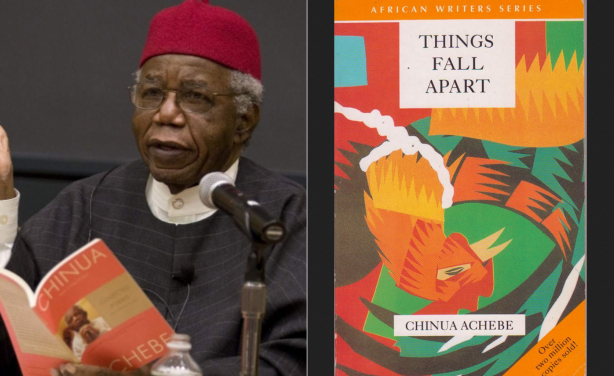Generations of African Pentecostals (and their Western Evangelical counterparts) have been taught to look to the pre-Fall portions of Genesis and post-glorification texts of Revelation whenever they want to establish what is ideal. In fairness, the principle works sometimes. For instance, I think one can legitimately teach that the original human diet was plant-based. God says in Genesis 1:29, “I give you every seed-bearing plant on the face of the whole earth and every tree that has fruit with seed in it. They will be yours for food.” Although many Christians dislike this biblical dietary idea because they like their steaks and burgers a little too much as I do, it was really after the Fall that humans ate animals, according to Genesis. Also, it is very unlikely that glorified humans, after the restoration of Eden (Revelations 22), will eat animals for food.
However, I think it is fairly obvious that the principle is not universal. For instance, are we to conclude from Genesis that animals, especially snakes, used to have intelligent conversations with humans – bearing in mind the mytho-historical character of Genesis? I am not so sure about that. Also, did God really literally fashion Eve out of Adam’s side or rib – considering that humans have equal number of ribs on both sides? I’m not so sure about this one either. Besides, the principle does not work well with the idea of an ideal marital status. As already argued, not only does Genesis not teach monogamy as an ideal or the godly form of marriage, there also will be no human marriages post-glorification (Matthew 22:30). Indeed, the only marital language in the New Testament describing Christ’s union with the church is arguably metaphorically polygamous (Ephesians 5:24-27, 2 Corinthians 11:2, Revelations 19:7-9, 21:2), since the church comprises millions of people.
Having argued that Scripture does not endorse monogamy over polygamy (see Part 2 and Part 3), I now want to discuss something else recorded in the New Testament. Let us begin with a thought experiment: what would Jesus have said had someone asked “Rabbi, which is the ideal marital status for your followers – monogamy or polygamy?” I think Jesus would have answered with a trademark better third alternative: neither! Matthew includes relevant detail in his reporting of Jesus’s response to the Pharisees’ question on divorce. After the Pharisees had correctly replied that Moses permitted a man to write a certificate of divorce and send the wife away, Jesus countered thus (19:8-9):
Moses permitted you to divorce your wives because your hearts were hard. But it was not this way from the beginning. I tell you that anyone who divorces his wife, except for sexual immorality, and marries another woman commits adultery.
Apparently, the notion of marriage had deteriorated so badly and the Rabbi Hillel school had become so influential that Jesus’ disciples thought this teaching near-impossible to practice. Hence, they commented that “If this is the situation between a husband and wife, it is better not to marry.” (19:10). Jesus responded to the disciples’ comment thus (19:11-12):
Not everyone can accept this word, but only those to whom it has been given. For there are eunuchs who were born that way, and there are eunuchs who have been made eunuchs by others—and there are those who choose to live like eunuchs for the sake of the kingdom of heaven. The one who can accept this should accept it.
In this response, Jesus briefly mentions three kinds of eunuchs, beings that were well known in that region of the world. He talks about some people who simply do not have sexual inclinations or desire to marry (natural eunuchs), those who may desire to marry and be sexually active but cannot because they have been castrated (eunuchs made so by others), and those who heaven empowers to be single. This latter group may (or may not) occasionally desire the married life but will ultimately decide against it “for the sake of the kingdom of heaven.” Jesus and Paul would be examples of people who lived like eunuchs.
Here is the key point. Jesus agrees with the disciples that it is better not to marry (than to be married and later commit adultery) and then adds that “the one who can accept this should accept it.” This is about as clear teaching on Christian marriage or marital status as the entire New Testament contains. For the sake of the kingdom, something churches claim to be all about, Jesus teaches that it is better to be single. It is critical to observe that Jesus does not teach monogamy as the “Christian” marriage.
This teaching seems to have influenced Paul the Apostle. After revealing that his unmarried or eunuch life was a gift from God (1 Corinthians 7:7), Paul writes the following:
I would like you to be free from concern. An unmarried man is concerned about the Lord’s affairs—how he can please the Lord. But a married man is concerned about the affairs of this world—how he can please his wife—and his interests are divided. An unmarried woman or virgin is concerned about the Lord’s affairs: Her aim is to be devoted to the Lord in both body and spirit. But a married woman is concerned about the affairs of this world—how she can please her husband. I am saying this for your own good, not to restrict you, but that you may live in a right way in undivided devotion to the Lord. — 1 Corinthians 7:32-35
Here, Paul breaks down Jesus’ “for the sake of the kingdom” phrase. In very practical terms, unmarried Christians have more time and resources to share with God and humans than married people do. (Here is a good place to warn against the typical church’s view of singlehood, especially intentional female singlehood, as some kind of disease; Jesus thinks of it as better than being married.) Though unmarried, Paul correctly observes that “those who marry will face many troubles in this life” (1 Corinthians 7:28). Every married person knows this to be true.
Hence, I think we can make a safe inference from Paul’s Christ-influenced theology. If we were to ask Apostle Paul to comment on our subject, monogamy or polygamy, I have no doubts that Paul would emphatically prefer monogamy to polygamy. BUT he would not decide against polygamy because it is supposedly a sin like those White missionaries to Africa thought and taught. Paul would prefer monogamy because it, in principle, allows for more time to do kingdom work than polygamy would. Ideally, however, Paul, like Jesus, would have preferred singlehood. Since we cannot universalize singlehood without undermining humanity, however, some people must continue to get married—by both monogamy and polygamy.




4 Comments
If you would, please leave a reply. Tell us what you agree or disagree with, what you learned from the essay, or whatever you want to say. We will ensure to respond to you in a respectful manner.
I love this one! It was eye-opening and redeeming, especially the biblical endorsement of singleness.
However, I do believe that the Father saw some original value in marriage when He said “it is not good for man to be alone. I will create him an ezer kenegdo (helper or strength counterpart)” (Gen. 2:18). I also believe the Son saw value in marriage when He stated, “what God has joined together, let no one separate” (Matt. 19:1-6).
YHWH created the institution of marriage and even used it as a representation of Christ and the Church. It has to have been more than a distraction from the Kingdom of Heaven.
I would argue that when Paul and Christ preferred singleness to marriage, it was in reference to the perversion of marriage that happened after the fall. Marriage was initially intended to be a harmonious union of intimacy and oneness, but the curse pitted man and woman against each other, leading to disharmony, disagreement, competition, and even hierarchy within marriage (Genesis 3:16). These factors of marriage, which make it difficult for husbands to please wives and wives to please husbands, are what distract us from fully dedicating our lives to the Most High.
If we functioned in Edenic (pre-serpent) marriage––oneness and harmony––our marriage would possibly even function as a way to amplify our relationship with the Most High and the Body of Christ rather than distracting us from it. That’s just my postulation.
On another note, if we are allowed to deny the antecedent of YHWH creating plants for our consumption, then we should be able to deny the antecedent that when YHWH created the first marriage as monogamous then He didn’t intend for it to be polygamous. We have to be consistently fallacious if it’s a fallacy at all…lol.
Good insights there, ma’am. I am certainly not saying that marriage is bad or undesirable. And yes, when Jesus teaches that what God has joined let no mam separate, he teaches that marriage ought to be permanent.
On your last paragraph, I’ll leave that alone for those in disagreement with you. I’m not.
Thanks.
Good one @Krista